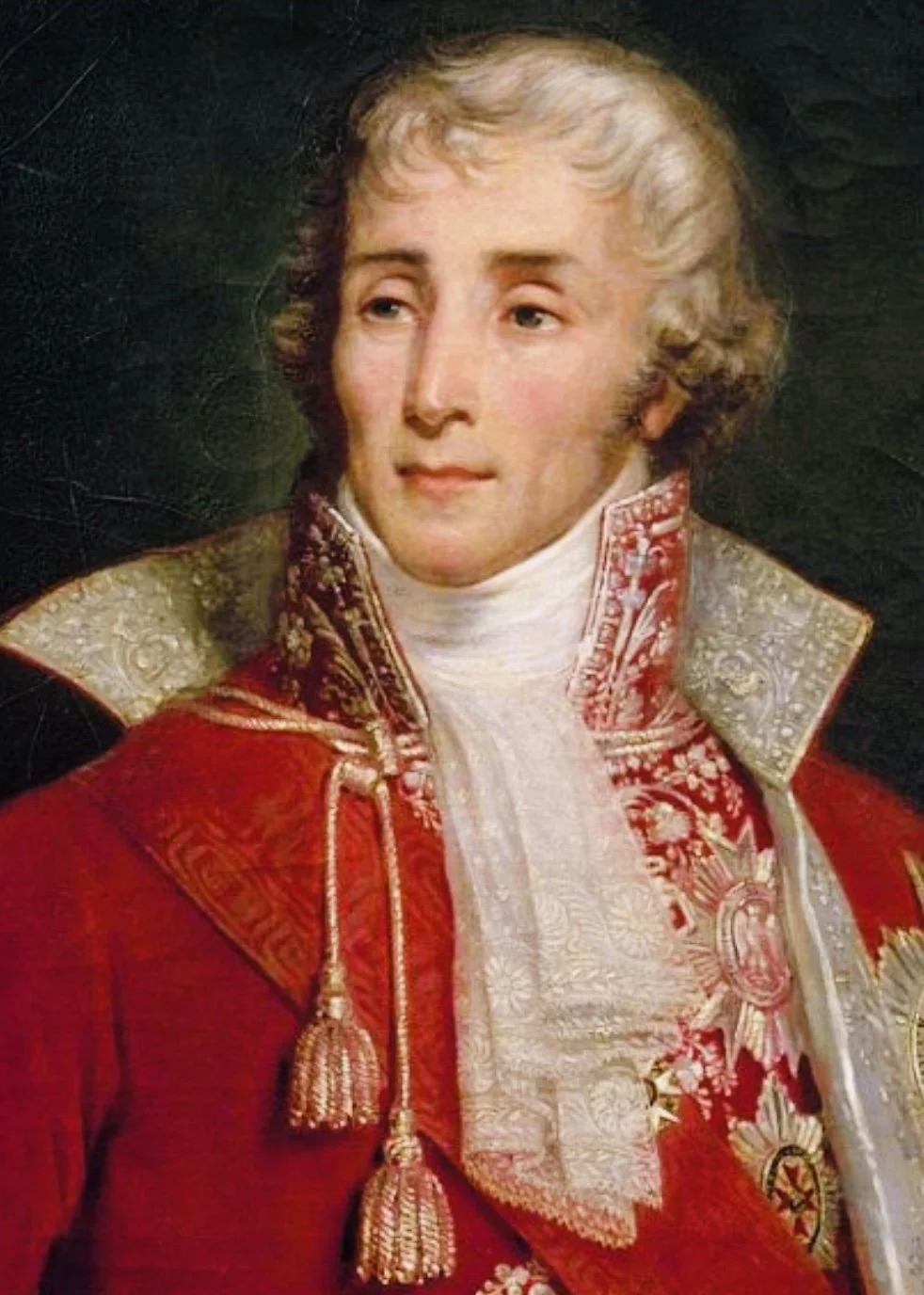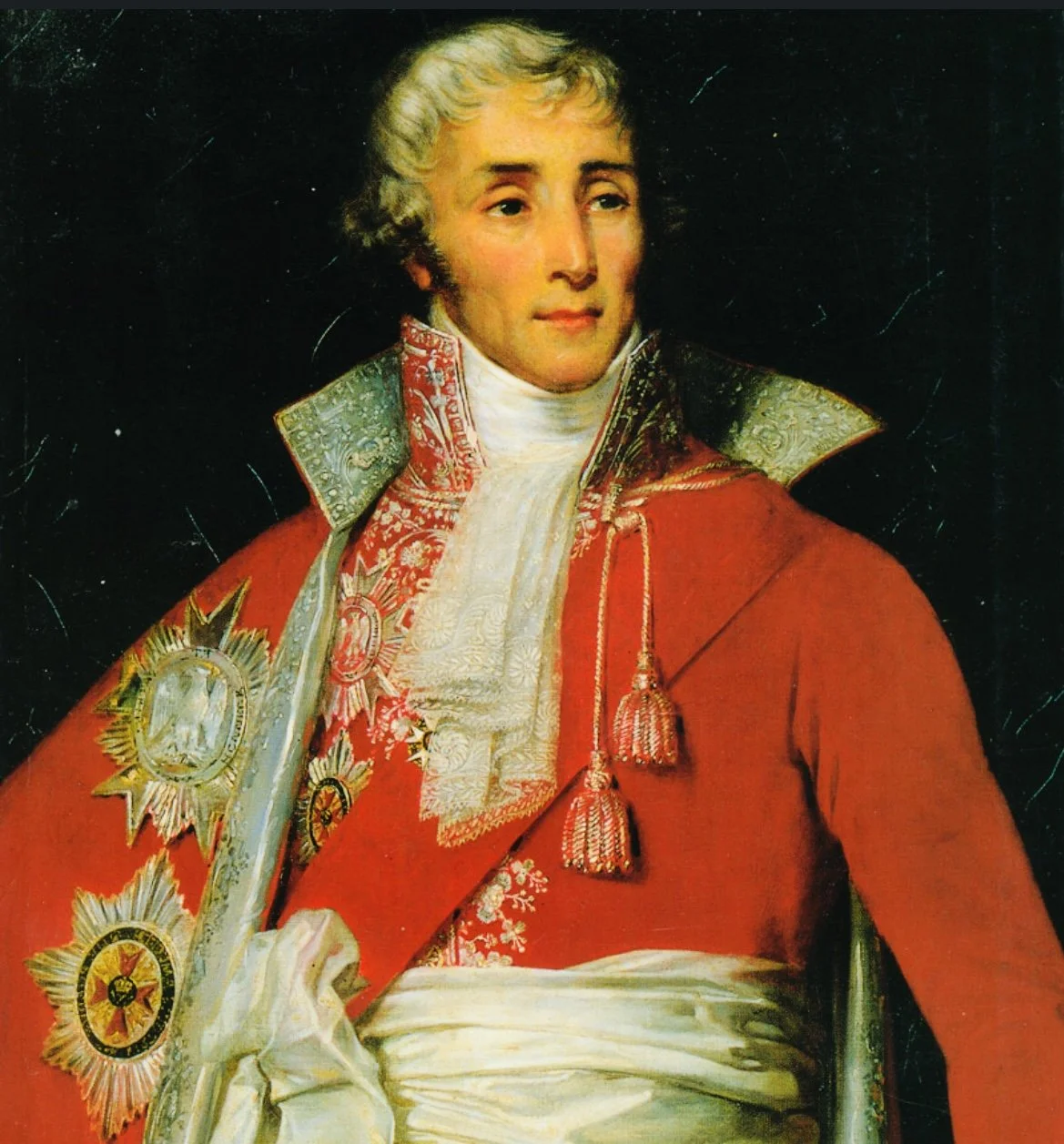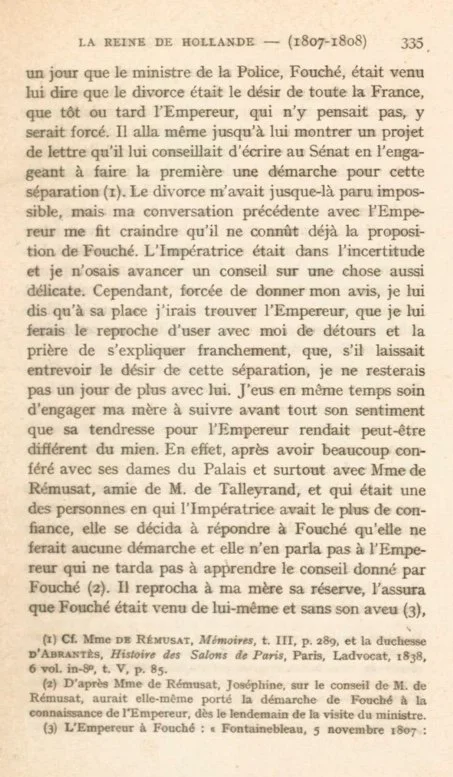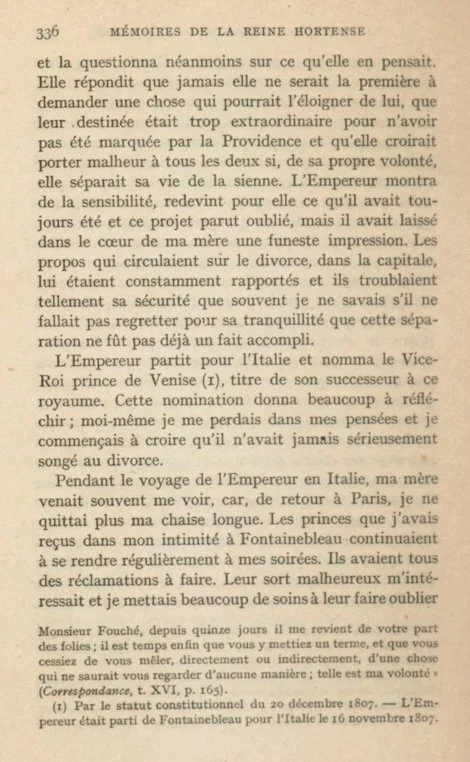Let’s have another look at Hortense’s Memoirs. If you want to read the book it is available for free at the side bar in English and French. Use the widget on the sidebar to translate the text below into pretty much any language.
The Chief of Police Joseph Fouché decides it time for a divorce and he applies pressure about his agenda. Was he working on behalf of someone else? Later on, we see Fouché act as a traitor to the best interests of France.
We now know that it really was Napoleon’s doomed second marriage that most led to traitors taking over France behind puppets they could control. Had this plot been yet formulated by 1807?
Was there already a plot to destroy Napoleon through a “fake” bad faith marriage? Were the “best doctors” who all could not understood anything about Hortense’s son’s illness [croup] part of the plot?
Through patterns, we learn how the international spy system operates.
A lot of history has been engineered by the ultra wealthy and we are living this to a cartoonish degree in the present. I’m hoping awareness about our adversary will help us find out how we can save ourselves from the traps into which we have fallen.
Hortense’s memoirs continues:
Fouché had come to her and said that all France wished the Emperor to obtain a divorce, that so far he had not considered it, but that in the end he would be obliged to yield to public opinion.
Fouché even went so far as to show my mother the rough draft of a letter he advised her to write the Senate, and suggested it would be best if she were to be the one to take the first steps in the matter of securing this separation.
Previously a divorce had seemed to me to be entirely out of the question, but my conversation with the Emperor caused me to fear that he was already acquainted with Fouché's proposals. The Empress could not make up her mind what to do, and I did not dare advise her in regard to so delicate a matter.
Yet when she obliged me to express an opinion all I told her was that if I were in her place I should go to the Emperor, reproach him for treating me in this underhanded manner, and ask him to formulate his wishes clearly.
If he showed that he wished a divorce, I would not stay with him another instant. At the same time I took care to advise my mother to act as she thought best, for her affection for the Emperor might cause her to differ from my point of view.
As a matter of fact, having discussed the matter at length with her various ladies in waiting and especially with Madame de Remusat, the friend of Monsieur de Talleyrand, in whose judgment she had special confidence, the Empress decided to reply to Fouché that she would not take any action to defend herself.
She did not speak to the Emperor either, but he shortly afterwards was informed of the advice Fouché had given the Empress. He reproached my mother for having kept silent and assured her that Fouché had acted on his own initiative and not on the Emperor's behalf. Nevertheless, he questioned the Empress as to what she thought about the matter.
She replied that she would never take the first steps to bring about a change which would separate her from him. She said she considered their destiny had been so extraordinary that it had certainly been directed by Providence, and she believed she would bring misfortune on both of them if, of her own accord, she sought to separate their two lives.
The Emperor showed that he was touched, adopted the same affectionate attitude toward her as in the past, and the project seemed to have been entirely put aside. Yet the incident had aroused apprehension in my mother's heart. The talk going about Paris in regard to a possible divorce was being repeated to her all the time, and it so greatly disturbed her peace of mind that I frequently wondered whether in the end it would not be better for her if the divorce became an accomplished fact.
The original French is available below:





